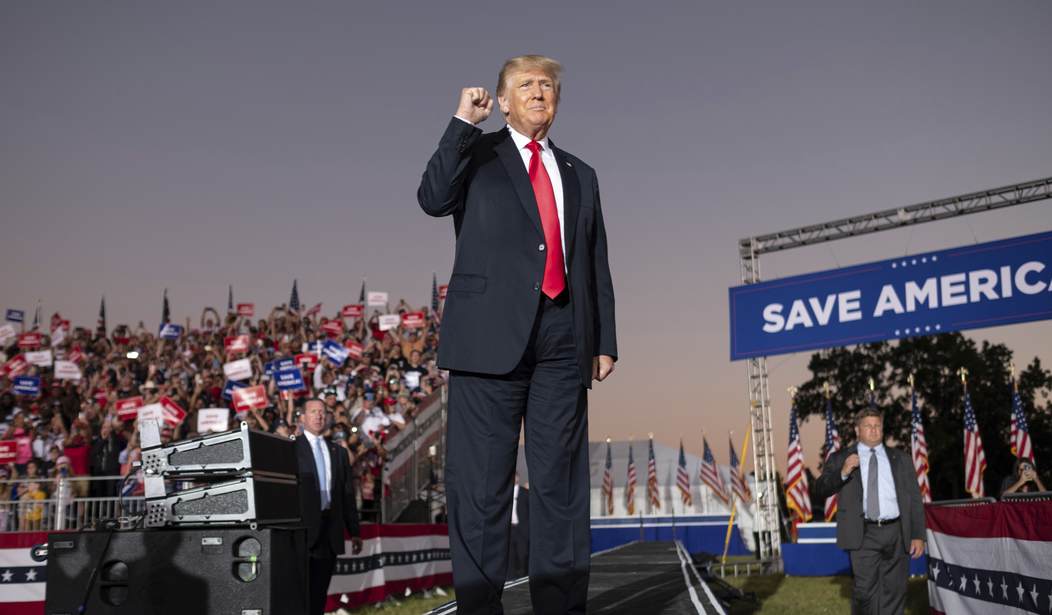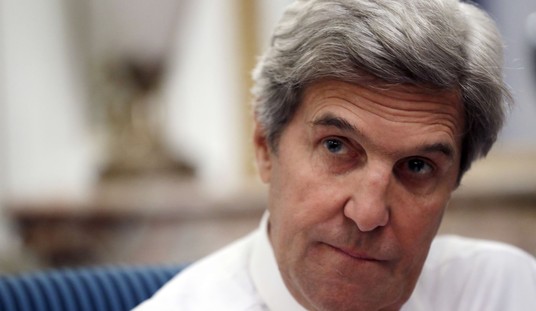I’ve been mulling over this idea ever since the disastrous GOP defeat in California’s gubernatorial recall election last September, but Tuesday’s significant GOP wins finally solidified it for me: Donald J. Trump should not run at the top of the ticket in 2024.
Now, before you go thinking I’m some Never-Trumper dope or RINO shill, hear me out and let me explain my view on our former president. For various reasons, I didn’t vote for Trump in 2016, but by 2018 I had seen enough of his policy decisions to happily vote for him in 2020. I have supported President Trump locally and I even attended a Trump rally in neighboring Nevada. My son and I had a blast rallying with like-minded Real Americans instead of the blue-hearted woke Californians we live amongst. In the end, excluding his spending and increase of the debt, I believe Trump’s policies were great for America and put us on the right path, which is what I care about most in a candidate.
In 2020, the left weaponized their Trump Derangement Syndrome (TDS) to energize their base. The left didn’t vote so much for Joe Biden as against Donald Trump. After Trump’s defeat in 2020, the left’s TDS did not wane one bit. In fact, it intensified to the point that, even though Trump was out of office, they continued to make him the key issue to energize their base. And sadly, it worked yet again—this time in California against Republican Larry Elder.
In the recent Virginia governor’s race, the left tried one more time to use their TDS tactics against Republican Glenn Youngkin, but this time something was different and the accusations didn’t stick. Why? The difference comes down to three things: the candidate, the state, and the policies.
In today’s political landscape, there are primarily three types of GOP candidates: pro-Trump, Trump-neutral, and anti-Trump. Obviously, each classification has gradients within it, but for simplicity’s sake they delineate as:
- A pro-Trump candidate strongly aligns himself with the former president through endorsements, appearances, interviews, and more, he’s “on the Trump Train,” and he encourages the perception that the former president is involved in his campaign (ex. Larry Elder);
- A Trump-neutral candidate accepts the former president’s endorsement but doesn’t actively align himself with Trump, he runs a conservative issues-based campaign, and he’s comfortable with the former president adjacent to and supportive of but not actively involved in his campaign (ex. Glenn Youngkin); and
- An anti-Trump candidate vigorously distances himself from Trump and likely denounces the former president, he’s barely even considered a Republican, and the former president is not only uninvolved but unwelcome in the campaign (ex. Mitt Romney).
Larry Elder branded himself a pro-Trump candidate by strongly aligning with Trump in the bluest of blue states. In their TDS frenzy, the left caricatured Larry Elder as being “literally Trump.” And just as the left did to the president, they successfully weaponized their base’s TDS with accusations of racism against Elder, calling him “the black face of white supremacy.” As a result, the Democrat Gavin Newsom didn’t have to run on his own terrible record or even against Elder himself; he simply ran against Trump and the left voted in droves.
Related: They’re at It Again: The Left Is Using Its California Playbook in Virginia
Unlike Elder in California, Glenn Youngkin in Virginia remained a mostly Trump-neutral candidate throughout his campaign, even as the left tried to characterize him as a pro-Trump candidate. While Youngkin was happy to accept President Trump’s endorsement, he did not ask him to hold rallies or join him on the campaign trail. Instead, Youngkin let Democrat Terry McAuliffe parade out Joe Biden, Kamala Harris, Stacey Abrams, and Barack Obama to attack him with their TDS tactics, while he remained focused on the issues Virginians really cared about, like their children’s education, job creation, safety, and ending the vaccine mandates.
If the defeat in California and Tuesday’s victories taught the GOP anything it’s that we need Trump’s policies but we don’t necessarily need Trump himself out front to win. In fact, when he is out front, we lose. Whenever the GOP ran a pro-Trump candidate, Trump was the issue and Democratic voters turned out. When the GOP ran a Trump-neutral candidate, Democratic voters didn’t get energized—even by an all-star Democratic lineup—and Democratic voters didn’t turn out. When we focused on issues and policies instead of Trump, we won, and that’s why I believe Trump should not be on the GOP ticket in 2024.
While it’s too early to name names, in 2024 the GOP should run two Trump-neutral candidates. Meanwhile, Trump should do what he does best and energize our GOP base by traveling the country, holding rallies and other events in support of the local and national GOP tickets. Trump could better serve the nation as the titular head of the GOP since he is able to bring out record numbers of voters who might otherwise stay home in the purple and even blue states.
In 2024, Trump will be seventy-eight years old. That’s the same age doddering Joe Biden is now. While I’m not saying I think Trump is at all doddering, as he seems to have the energy levels of men half his age, I am positing that seventy-eight is getting up there and perhaps the presidency is a younger man’s game. We’ve seen what a disaster Biden has been at this age, and I’m old enough to remember when Ronald Reagan was considered “too old” by some when he took office at almost seventy. I simply think Trump’s talents and experience could be put to much better use rallying the base and building a conservative media empire than running for president again.
Related:Election 2021: Winners and Losers
In the end, to be successful, the GOP must run on Trump’s policies without Trump himself being the focus. While former president Trump should definitely be involved, the GOP’s focus must be on the issues that America’s families care about. And while we’re grateful Trump chose to fight to Make America Great Again, it remains to be seen if he can take himself out of the spotlight for the good of America.










